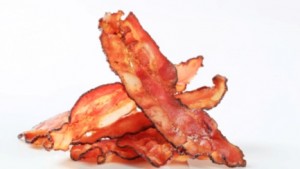Research Shows Bacon Is Saltier Than Seawater
 New research has discovered that bacon is now the second biggest contributor of salt in our diets, beaten only by bread. This problem is made worse by the fact that bacon is being used more in diets, due to cash-strapped families using it as a cheaper cut of meat. Some of the worst offenders were even found to contain more salt than seawater. Price doesn’t seem to always play a part though, with some of the cheaper cuts of meat not always saltier than more expensive brands.
New research has discovered that bacon is now the second biggest contributor of salt in our diets, beaten only by bread. This problem is made worse by the fact that bacon is being used more in diets, due to cash-strapped families using it as a cheaper cut of meat. Some of the worst offenders were even found to contain more salt than seawater. Price doesn’t seem to always play a part though, with some of the cheaper cuts of meat not always saltier than more expensive brands.
The leading supermarket chains were all included in the study, with a total of 130 products being studied. Among the results, Tesco 6 Smoked Back rashers were found to contain 3.8g of salt in just two grilled rashers, Morrisons contained 3g in their Saver Streaky bacon and Tesco Everyday Value Un-smoked Rind on Middle rashers contained over 5g in two grilled rashers.
Whilst other foods have been highlights as having high levels of salt, such as white bread, pasta bowls and sausages, the recession has caused bacon to become a particularly prominent offender. Although a lack of money has caused us to ignore labels in favour of a cheaper alternative, it is down to the manufacturers to reduce the quantities of salt in their foods. The recommendation for adults is no more than 6g of salt per day, while children between seven and ten should consume no more than 5g – those between four and six should have no more than 3g.
Too much salt can lead to many health problems, in particular heart disease and strokes. Studies have shown that every one gram of salt reduced in food could lead to 12,000 of heart attacks, strokes of heart failures being avoided. Not only do suppliers need to reduce the quantity of salt in bacon, and other offending foods, but labelling needs to become clearer in order to help people become more informed about the food choices they are making.


Comments are closed.